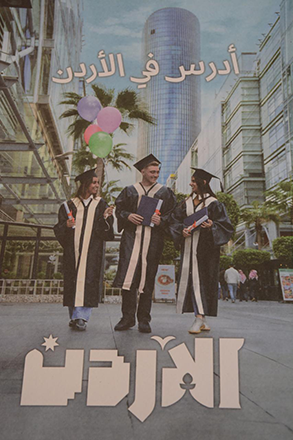AMMAN — Jordan has initiated a new initiative aimed at attracting secondary school students from the Kurdistan region of Iraq to pursue higher education in the Kingdom’s universities.
The campaign is part of a broader national strategy to expand Jordan’s international student base and strengthen its higher education system, the Jordan News Agency, Petra, reported.
A delegation from the Ministry of Higher Education and Scientific Research and the Jordan Tourism Board visited multiple schools in the region this week.
Branded under the theme “Study in Jordan,” the campaign is designed to showcase the benefits of studying in Jordan, including “enhanced” academic infrastructure and student support services tailored for international learners.
Mohannad Khatib, who serves as the media advisor to the Minister of Higher Education and heads the Unified Admission Coordination Unit, led the school outreach sessions.
He introduced students to Jordan’s academic offerings, recent sector reforms, upgraded campus facilities, and a new centralised online admission system aimed at simplifying international enrolment.
The delegation distributed an informational booklet titled “Study in Jordan” in both Arabic and English, with a Kurdish version currently in development to ensure broader accessibility.
Students engaged “actively”, asking questions about admission steps, available academic programmes, and daily life in Jordan.
In addition to school visits, the delegation, which included Khatib and Jordan Tourism Board’s Iraq representative Khaled Kilani, held meetings with key officials from the Kurdistan Regional Government’s ministries of education and higher education. Jordan’s Consul General in Erbil Fuad Majali also participated in these discussions.
Key engagements included talks with Kurdistan’s Minister of Education Alan Hama Saeed Saleh and other policymakers responsible for degree accreditation and scholarship funding.
The discussions stressed the importance of enhancing academic ties between Jordan and the Kurdistan Region.
Khatib highlighted Jordan’s push for greater international enrolment through digital platforms that allow students to apply and receive admission offers remotely, without intermediaries.
The meetings also addressed finalising an education agreement, increasing faculty and student exchange programmes, and establishing clear scholarship pathways for Kurdish students to study in Jordan.
